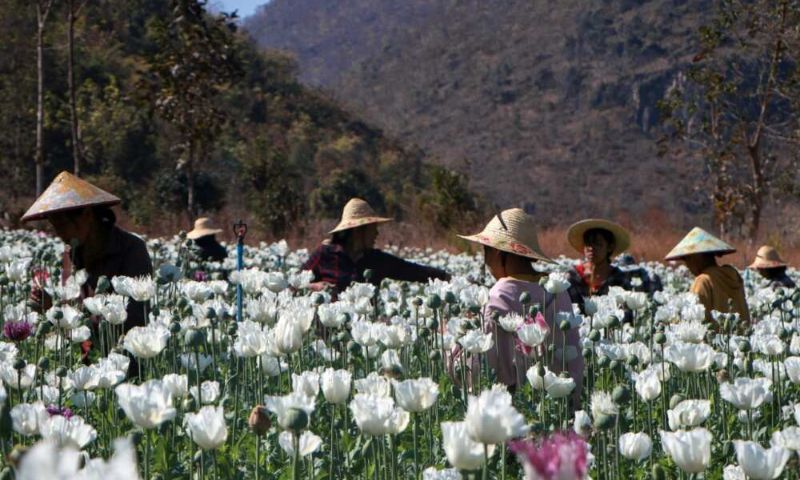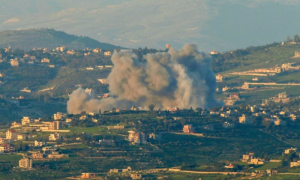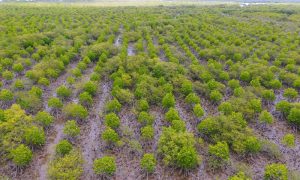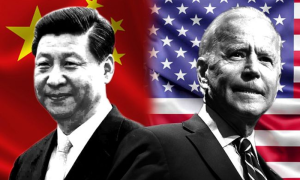PEKON, Myanmar: In a remote region of Myanmar, farmers engage in the age-old practice of harvesting opium from fields of nodding poppies, marking a significant shift in the global narcotics landscape.
According to the United Nations, Myanmar surpassed Afghanistan in 2023 to become the world’s largest producer of opium. This transition occurred after the Taliban government in Afghanistan initiated a crackdown on opium cultivation.
Myanmar’s rugged borderlands have long provided fertile ground for the cultivation of poppies, with ethnic minority armed groups and criminal syndicates exploiting the terrain to refine opium into heroin. Law enforcement agencies, overwhelmed by social and economic upheaval and armed conflict, often turn a blind eye to this billion-dollar trade.
In the aftermath of the military coup in 2021, which plunged Myanmar into turmoil and triggered widespread armed conflict, opium cultivation has gained newfound importance for farmers grappling with economic hardships.
Aung Moe Oo, a farmer from Shan and Karen states, has expanded his poppy cultivation from a few acres to three, citing it as the most viable means of sustaining his family amidst adversity. For him and many others, legality takes a back seat to survival.
The escalation of conflict and the devaluation of the local currency have further exacerbated the challenges faced by farmers like Aye Aye Thein, who have been forced to abandon traditional crops due to insecurity and economic instability.
As the turmoil disrupts transport and impedes the export of agricultural goods, poppy cultivation emerges as a lucrative alternative, offering higher returns and minimal logistical hurdles.
Meanwhile, opium production in Myanmar is undergoing a transformation, with increased investment and improved irrigation techniques driving up yields. Last year alone, Myanmar produced an estimated 1,080 metric tonnes of opium, a significant increase from previous years.
Despite these developments, many farmers remain unaware of Myanmar’s status as the world’s leading opium producer, focusing solely on their immediate surroundings and concerns.
With conflict showing no signs of abating, farmers like Aung Moe Oo anticipate even larger harvests in the coming year, reflecting the grim reality of displacement and limited economic opportunities.
As Myanmar grapples with the dual challenges of political instability and narcotics production, urgent action is needed to address the root causes driving farmers towards illicit cultivation and to mitigate the devastating impact on communities and global security.























